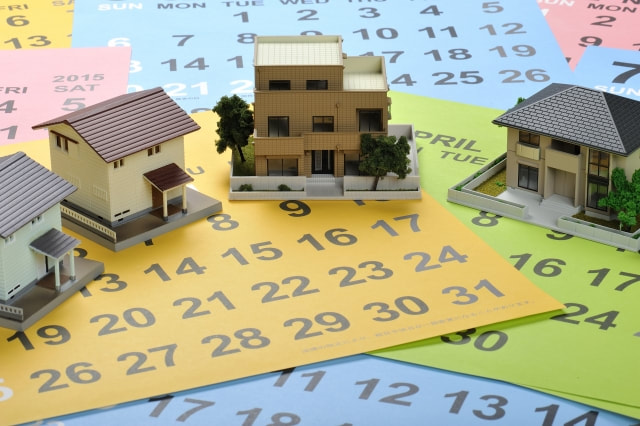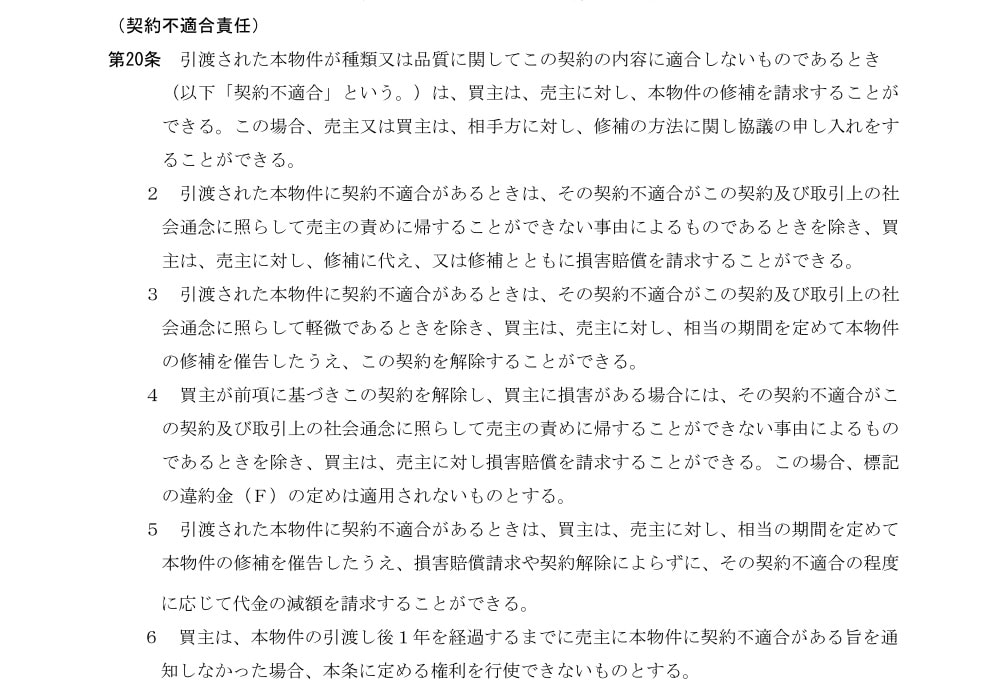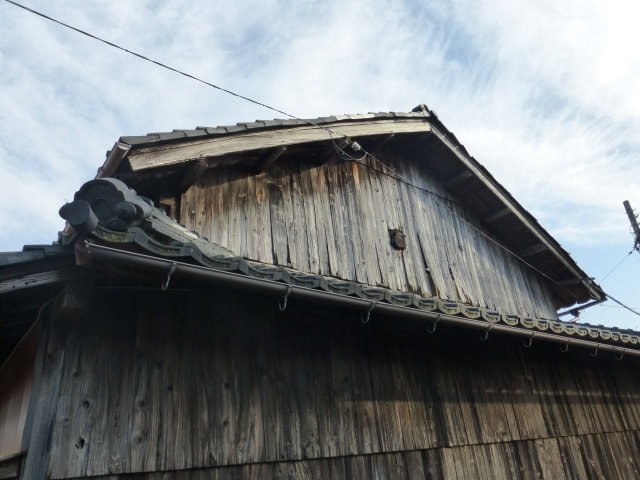Cost required when buying and selling real estate- Agency feeIf you trade real estate through a real estate agent, you must pay the prescribed brokerage fee (intermediary fee) to the real estate agent. The maximum amount of brokerage fees is set by the Ministry of Land, Infrastructure and Transport Notification. When requesting a real estate agent to sell or purchase real estate, we conclude an intermediary contract with the real estate agent. The intermediary contract defines the period and conditions of the request, the amount of intermediary fee, etc. Brokerage fees are often paid half the amount when a sales contract is concluded and half the amount when the balance is paid. Real estate brokerage fee rate
*¹ Amount not including consumption tax <Calculation example> Brokerage fee when condominium sale is completed for 30 million yen (1) Principle calculation method *When calculating the brokerage fee, use a separate calculation. 2 million yen x 5.5% = 110,000 yen ・・・・a (4 million yen to 2 million yen) x 4.4% = 88,000 yen ・・・・b (30 million yen-4 million yen) x 3.3% = 858,000 yen...c Total a+b+c = 1,056,000 yen ② Quick calculation method 30 million yen x 3.3% + 66,000 yen = 1,056,000 yen Therefore, the maximum amount of brokerage fee (including consumption tax, etc.) will be 1056,000 yen when a real estate agent requests brokerage and the sale is completed for 30 million yen. If you have any questions, please feel free to contact us.
When considering the purchase of real estate, is it possible to make a judgment without looking inside the property? If the property is for investment and you know the expected yield, purchase price, age of the property, number of minutes walk from the nearest station, and local environment, you may not need a preview. However, if the real estate to be purchased is your own second house and you spend off in Kyoto, is it possible to make a decision without seeing it with your own eyes?
If real estate is ready-made goods such as cars, it may not be so difficult to make a decision if you know how it is based on the number of years that have passed. However, there is no one real estate in the world, the specifications of the building are various, is difficult to figure it out that the environment of the area, the atmosphere that the building emits, the slight slope, etc., unless you actually walk around and visit the property. With that in mind, when buying a real estate, if the purpose of the real estate purchase is to come to Kyoto, enjoy a leisurely vacation, enjoy a different culture, and spend a new discovery, we would like you to see the real estate with your eyes and make a decision. For that reason, we were skeptical about remote guidance. However, if the real estate you select is for investment purposes or if it helps narrow down the properties before coming to Kyoto, it is also good to remotely look inside the property or provide photos based on the floor plan with a 360° camera. Thinking about this, we decided to purchase new equipment and add new pages to existing sites for more details with 360° view properties, start taking new photos from this week. Also, if you would like to get a remote preview, we can guide you on WhatsApp, Skype, Messenger, Hangout, WeChat and Line. Since there are restrictions on the times and days of the week that we can inform you, if you would like to visit remotely, please contact us in advance and we will adjust the schedule. If you have a property that you would like to visit, please contact us. We have encountered a problem in a case related to the column we posted the other day. This time, we are working as an agent of the seller and are proceeding with the contract procedure. The real estate is a refurbished property in Kita Ward, originally used for a guest house. As part of the asset consolidation, seller stopped the operation of the guest house, and when it was for sale, an individual customer in Tokyo applied for the purchase. We are an agent of the seller, and a customer in Tokyo was found by another real estate agent and applied after the property inspection. The buyer is an individual, and the seller is a general corporation in Japan. First of all, if there are two real estate agents, the seller's real estate agent will do the research of the real estate, the preparation of the explanation of important matters, and the preparation of the contract. In this case, it's us. Since the real estate agent of the buyer guided the property on Sunday, applied for it on Monday, and had price negotiations, the seller presented a counter offer on Monday, and on Tuesday morning, the buyer confirmed the consent and confirmed to the seller. Then, the price of the mutual agreement was decided. The buyer's desired contract date is Thursday. Generally, the contract is concluded within 1 week to 10 days after applying. This is because the real estate survey needs to be done, so a contract two days after the agreement is a very short term. This time, the contract will be carried around, and both parties will carry around the contract and get a signature stamp. Therefore, in this case, the buyer will first sign the contract on Thursday, and the seller will sign the contract later. It's a very short schedule. Also, real estate agents often have a off on Wednesdays, and the buyer's agent is also closed. However, even if it is Wednesday, we need to complete and book the contract on the morning of the next day, so the contract will be prepared on Tuesday and the contents of the contract will be confirmed on the Wednesday. During the day, we conducted field surveys of real estate, surveys related to government offices, and surveys that can be acquired on the Internet. We had to prepare the contract documents by the next morning. The contents of the documents will be the contracts, document of explanation of important matters, equipment table preparation and status report, and boundary explanation documents. It will be completed in about 3 to 4 hours. We had confirmed in advance with the seller's corporate representative and secretary, but this corporation has two representative directors appointed, and we were hearing that the name of 100% investor will be used in the real estate sale contract.
After confirming the contract with the buyer, we bound the documents and delivered the documents to the agent office on Thursday morning and waited for the contract. During that time, we coordinated the necessary documents and interviews with the seller, and confirmed the necessary documents. And yesterday, Thursday, we asked the buyer to sign the contract safely, and received the 10% of sale value as deposit. The buyer's procedure is completed. Then, we were contacted by the secretary today, and it became clear that the representative's seal stamp certificate was different from that of the representative stated in the contract. Yes, the seal was registered under the name of the other representative director. We can't prepare the seller's seal stamp certificate that is already written on the document signed by the buyer. 6/23/2020 Points to note when buying and selling real estate due to revision of the Civil CodeRead Now Today, we would like to explain the points to keep in mind when buying and selling real estate due to the revision of the Civil Code. First of all, due to the revision of the Civil Code in April of this year, the seller of real estate has changed from 2 choices of general or real estate agent to 3 choices of general individual, general corporation or real estate agent. In addition, the seller's liability for defect warranty has been changed to non-conformity liability. The details are as follows. Due to the revision of the Civil Code, the word "defective" is no longer used and has been changed to "not compatible with the contract." In addition, as a result of being arranged as contract (default) liability, the provisions of liability for non-conformance of contracts are applied regardless of specific or unspecified items, and the target of non-conformance of contracts is not limited to primitive defects. In addition to the cancellations and damages that have been made up until now, buyers have also been granted additional completion claims and reduction claims. In addition, the claim for damages now requires the responsibility of the seller. In other words, the protection of the buyer is stronger than ever before. In addition, the wording of the contract has been changed as follows. (Nonconformance liability) When the delivered Property does not conform to the contents of this contract in terms of type or quality (hereinafter referred to as “conformance to contract”), the Buyer may request the Seller to repair the Property. In this case, the seller or the buyer may request the other party to discuss the repair method. 2. If there is a contract nonconformity for the delivered property, the buyer, damages may be requested to the seller in place of or together with the repair. 3. When there is a contract nonconformity of the delivered property, the buyer shall set a reasonable period of time for the seller unless the contract nonconformity is minor in light of this contract and the social conventions of transactions. The buyer can cancel this contract after issuing a notice to repair the property. 4 If the buyer cancels this contract based on the preceding paragraph and the buyer has damage, except when the nonconformity of the contract cannot be attributed to the seller's blame in light of this contract and the social conventions of transactions, the buyer may claim damages against the seller. In this case, the penalties specified in the contract shall not apply. 5 When the delivered property has a contract nonconformity, the buyer notifies the seller of the repair of the property for a considerable period of time, the buyer can request a reduction in the price according to the degree of nonconformity of the contract, without depending on the claim for damages or the cancellation of the contract. 6 The buyer shall not be able to exercise the rights set forth in this article if the buyer does not notify the seller that there is a contract incompatibility with the property within one year after the delivery of the property. A consumer contract in a real estate transaction is when the seller is a business operator other than the real estate agent and the buyer is a consumer (transaction to which the Consumer Contract Law applies). Tomorrow, we will explain the necessary documents etc. in case the seller is a corporation.
Today, we would like to explain the initial investigation when we were asked to sell real estate.
Actually, one owner contacted us today and asked us to sell the detached house. Therefore, we would like to explain what we do as an initial investigation first. Since it was in the evening when the investigation was begun, we examined the details today within the range which can be investigated on the internet. The first thing we did was to get the land and building registration transcripts. This can be investigated at the legal affairs bureau, but it is also possible to investigate on the internet. Since we are registered as a vendor, we used our login ID and password to search. Land is selected in the order of Kyoto Prefecture, Kyoto City, target ward, town name, and lot number. In the case of a building, the same procedure is used for a building, and in the case of a complete set of information, we will be charged 334 yen per piece of information. The land and building registration transcripts confirms the details of the owner, information about the property and the rights to the property. We then check to see if there are official maps and acreage survey maps of the land. Public maps can be found basically anywhere, but the acreage survey maps are not registered unless they have been surveyed. If there is no information available on the target land, we check the land adjoining the land on the public map in order to see if a survey map on the next land is available. In the case of a building, we also check if the building plan is registered. The next step is to investigate the type of street access. This can be investigated on the website operated by Kyoto City. This time, we found out that the type of road is Article 42, Paragraph 1, Item 5 of the Law. It is a road that can be rebuilt. Since we didn't have the acreage survey map, we will visit Kyoto City Hall to get information of street width and frontage, as well as a field survey. By the way, since city hall can only be visited during limited hours on weekdays, it is carried over to the following week. Next, we needed to investigate the zoning of the place where the subject property is located. This is also available on the website operated by Kyoto City. The site has become more and more convenient over the years, and we can check the zoning, building-to-land ratio, floor area ratio, and minimum site area for buildings. It is now possible to look up information on height district, landscape preservation, distant landscape, etc at ont place. The information on outdoor advertising, fire protection zones, built-up urban areas, housing construction control zones, and ruins maps are available on separated sites. Once the above investigation has been completed, the next step is disaster prevention. For disaster prevention, Kyoto Prefecture has a website dedicated to this topic. We can also check the flood, earthquake, and sediment disaster warning zones. If you would like to find out information about your location, please check the following sites Multi-Hazard Information Providing System http://multi-hazard-map.pref.kyoto.jp/top/top.asp The above is the main content of the information that can be investigated on the Internet. In addition, similar to the public maps, but property tax lot reference maps and building agreements can also be researched online. In fact, the above information will be used to survey the Legal Affairs Bureau, City Hall, Waterworks Bureau and the site. It is also possible to obtain information on the buried pipe status of the water supply system and the buried gas pipes via the internet. In addition, the above is only data information, and we will proceed with the survey including confirmation of boundaries, confirmation of crossing borders, building conditions, etc. This is a job for new buyers to understand the situation, to feel secure, to be satisfied, and to purchase real estate. If you have any questions, please contact us individually. Two-handed trading is a method of brokering real estate sales by both the seller and buyer of real estate. If you buy real estate only once in your life, I think it's a word that even Japanese people rarely hear. Let's start talking about this deal today. First, if the transaction is questioned as legal or illegal, it becomes legal. In a two-handed transaction, a real estate agent acts as an agent for the seller and an agent for the buyer only by one company. There is no illegality here, and the real estate brokerage fee charged is also a regular amount. So what is the problem with this fact? In that case, an intermediary company who has received an intermediary contract from the seller monopolizes the information and does not accept the intermediary of another company. Generally, intermediary contracts are divided into the following three types.
※There are two types of Non-Exclusive Brokerage Service Agreement: "explicit type" in which the requested party is announced and "indefinite type" in which it is not disclosed. In the case of "explicit type", if you negotiate with a company that has not announced it, you will need to pay operating expenses etc. In general, a real estate agent proposes Privilegedand Exclusive Brokerage Service Agreement or Exclusive Brokerage Service Agreement which can monopolize information at the beginning. In this way, first of all, the real estate agent can get the agency fee of the seller's side reliably. There is nothing ethically wrong with that. However, the way the information is handled afterwards can make a big difference.
If the real estate agent thinks of the seller, expands the sales outlet as much as possible, and shares the information with other real estate agents, the seller's desired price will be broader and the information will be communicated to those who are considering purchasing. Information is provided directly to the real estate agents, and by registering with REINS, strictly speaking, real estate agents throughout Japan can introduce the property. Such real estate agents are sensible and reliable. However, the reality is that large real estate agents, in particular, have severe sales quotas, so they choose a method that can obtain both the brokerage fee of the seller and the brokerage fee of the buyer. That is the holding of information. First of all, there are cases where the prescribed REINS is not registered. Even if it is registered, there are cases where it will be registered when they receive the purchase application through their client. In addition, even the information is registered, when they receive an inquiry from another company, there are cases where false information is provided such as it's currently in a business negotiation. At the time of the response, other companies will not be able to broker the real estate. Such inconvenient facts will not be communicated to the seller, but only if the agent finds a buyer, it is possible that a prospective purchaser has appeared. If such a method is taken by the agent, whichever comes first if another real estate company finds a buyer, or if the real estate price goes down a bit, but the agent still gets brokerage fees for both the seller and the buyer. This is a fact and a secret that any real estate agent knows. There is nothing wrong with a real estate agent working hard to become an agent for the seller. If the agent is a company that can take the right action, you can make a request. Today is the case of buying real estate, and is the story of the case where the property you are concerned about is found.
There are several ways to look for real estate to buy in Kyoto, including browsing real estate search sites, asking a real estate agent to suggest a desired property, and finding a property by chance while walking around the city. In the midst of all of this, today's story, can you buy the real estate that you found while walking in the city? When you come to Kyoto for sightseeing, have you ever wondered Is this house empty? No one lives there? And then, have you ever wondered What? Maybe we can buy this house? For example, if the person next door came out, don't you want to ask Does anyone live in this house? For example, if you find the tape on the post and find someone is carrying out luggage, don't you like to talk to them? For example, when you find the property which seems nobody lives because there is garbage scattered around the entrance, have you ever thought Oops! can I buy this? From the conclusion, it is impossible. Unfortunately, even if it's a vacant house or no one is using it, even you knock on the door and ask does anyone live here? or ask do you want to sell it?, they won't say Yes to you, they won't sell it. Until the real estate goes on the market, twists and turns, it will continue to change with the property for sale beyond many stages. First, as an example, vacant homes receive many letters every month from real estate agents. A letter is sent every month to the owner's address, by checking the home address from the register, and by dropping directly on the vacant property. They receive letters from many companies, from large and small, and not just one contractor. And they get letters from a lot of real estate agents, even in the real estate where it's currently residing. This means that a real estate agent who wants to conduct real estate sales brokerage will walk around the city every day, wearing out the soles of his/her shoes, throwing out letters when he or she finds an empty house, and sending out monthly letters when they finds the owner. So, before you find the property, many professional real estate agents make sales pitches again and again that We'll sell high, We'll buy, We'll find the Buyer, and so on. And to say that if the property is not yet on the market is to say that the owner doesn't want to sell the property. If you decline for another reason, the descendants who inherited the property are not yet ready to sell it. If the parents die, the child will own the property through inheritance. If the property is vacant, then yes, the child has a separate estate and has no plans to use the property. Maybe he/she'll put it up for rent. However, this is not a very realistic case, as it would require renovation costs. Many Japanese people inherit real estate from their parents and keep it intact for two to six years. This is because there are cases where the real estate is disposed of after waiting for the thoughts of the ancestors, the 3rd anniversary of death, and the 7th anniversary of death. This is still a good thing, but if there is more than one heir and the heirs are in trouble with each other, it will be impossible to buy it in the first place. When real estate compares the state in which the old house is located with the state of the vacant land, the property tax will be cheaper if the old house is located. Therefore, it is more convenient as an heir to leave it as it is if it is necessary to pay the tax even if the old house which is not used is left unattended. Next time, I'm going to tell you why real estate agents want to do a sales brokerage. Many real estate companies in Japan are closed on Wednesdays. It seems that the origin of Wednesday is the day when the contract flows on the water, or the day when the contract is cancelled. In line with that Wednesday, we have set consecutive holidays, with Tuesday the previous day and Wednesday as holidays. It is often adopted by major real estate companies whose main business is brokerage.
Some companies are closed on Wednesdays only, while others are closed on Wednesdays and every other Tuesday. By the way, some old small companies are closed on Sundays and holidays. In addition, even among major real estate companies, most of the companies whose main business is the corporation have holidays on Saturdays, Sundays, and holidays, and many of them work on weekdays. Also, I think that it is the same in other countries, but there are many companies that are members of the franchise brand of real estate. For example, Century 21 has around 1,000 stores in Japan, private companies and companies with a few staff members have joined Century 21 and are operating under the brand power. The uniform logos, uniforms, and training provided by the operating company make it possible for small companies to form a group and carry out advertising with a relatively small budget. However, payment of merchant fees, such as following certain rules and paying margin for sales, is a condition. Real estate companies have a strong side-to-side connection, and there are many cases in which they encourage each other to share their custody properties, request sales, and purchase properties before they enter the market. When the seller is a real estate agent, and the seller has an intermediary agent, in many cases the agent can ask the seller to purchase the real estate at a lower cost than entering the market. Of course, there are reasons for not going directly to the market, and vendors can buy for various reasons, such as hurrying sales, poor building conditions, many right holders, or problems. A real estate company will perform such a lubricating oil function, so that the real estate can be purchased by ordinary individuals with peace of mind. |
Details
AuthorArrows International Realty Corp. Archives
June 2023
Categories
All
|








 RSS Feed
RSS Feed